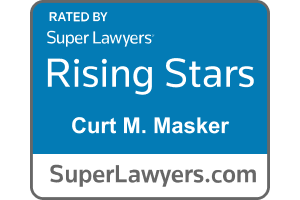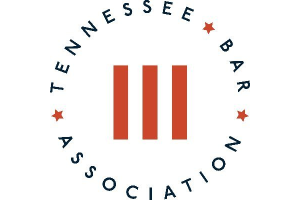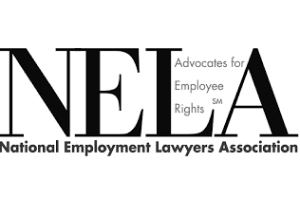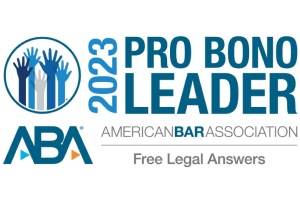for Workers
Top 15 Reasons Why Employment Lawyers Decline Cases
The purpose of this article is to provide some insight into the case evaluation process by discussing in general terms the key reasons why many lawyers decline representation in employment law cases.
Keep in mind that case evaluation and selection is an art, not a science, and most attorneys have differences of opinion on what factors create strong claims.
If we have not accepted your case, you should know that lawyers evaluate cases differently, and another firm may be able to assist you even if we can’t. So we highly encourage you to reach out to other lawyers who may be able to assist you.
#1. You Haven’t Been Terminated
Many employment laws are designed to remedy wrongful termination. In the vast majority of cases where representation is accepted, the employer terminated the employee (or didn’t hire the job applicant). (Note that this factor does not apply to all claims, such as wage-and-hour violations.)
If you are still employed by the company, then there might be no economic damages, or lost wages, a key component of damages in employment cases. This greatly reduces the amount of damages that can be recovered in court.
Every employment situation is unique. If you are still employed but believe your legal rights are being violated, you can schedule an Initial Attorney Consultation with one of our experienced Nashville employment attorneys here.
#2. You Quit
Some employees understandably throw up their arms and quit in frustration over their employer’s failure to remedy a bad work situation. This is an understandable decision and, on a strictly personal level, a wise move. Life is too short to deal with jerk employers, and it’s better to have a good job than a good lawsuit.
However, in the legal sense, quitting can be detrimental to your employment law claims. When an employee quits, he or she must establish constructive discharge, a high legal standard to meet. In essence, you have to establish intolerable working conditions that the employer intentionally created in order to force you to resign. Failure to prove constructive discharge can lead to dismissal of the claims and/or denial of economic damages.
#3. No Protected Class (or Activity) Involved
One of the biggest complaints from employees who call employment lawyers is that they’re being berated, bullied, or otherwise treated poorly at work by supervisors or coworkers. The sad reality is that bullying in the workplace caused by personality conflicts, bad management, or just plain meanness is generally legal in Tennessee.
Unless harassment is because of a legally protected class (race, sex, disability, etc.)—and there is strong evidence showing this connection—it’s likely such harassment is unfair, but not illegal.
Similarly, to be legally protected, an employee’s complaint about unfair workplace conditions must implicate a legally protected class. Complaining about general unfair treatment based on personality conflicts or workplace drama is not legally protected.
Here are some examples to highlight the difference:
- Example 1: A male supervisor only berates women, makes derogatory remarks about women belonging at home, and refuses to hire women into leadership positions. This situation implicates a legally protected class (sex).
- Example 2: A male supervisor is mean to everyone and does not make derogatory remarks or jokes about anyone’s protected class. This situation probably does NOT implicate a legally protected class.
- Example 3: An employee submits a written complaint describing being treated poorly because of his race and includes specific derogatory statements that were made to him by coworkers. This complaint is legally protected.
- Example 4: An employee submits a written complaint about workplace drama and unfair treatment based on poor management and personality conflicts. This complaint is probably NOT legally protected.
#4. Weak Evidence
The simple fact that an employee belongs to a protected class or engaged in a protected activity is usually not enough, on its own, to prove illegal discrimination or retaliation. Employment discrimination and retaliation claims require the employee to show a connection between their termination and a protected class or activity (e.g., race, sex, age, or disability or reporting workplace harassment based on such classes). This is where the rubber meets the road.
Most employers are smart enough to not state an illegal reason out loud or in writing, so the employee must use circumstantial evidence to make this connection. Such evidence might include your recollection of derogatory slurs or “jokes,” text messages, emails, performance reviews, audio recordings, comparing your experience with other non-protected individuals in similar positions, or witnesses who can testify on your behalf. Usually, the employee must put forth evidence that the employer’s stated reason for the termination is intended to covered up the true (unlawful) reason.
But even in the best of circumstances, litigation is risky. If an employee sues an employer in court and loses, the employee might be responsible for paying the employer’s litigation costs, which can be thousands of dollars.
For these reasons and many others, employment discrimination cases are difficult to litigate and reputable law firms require concrete evidence of unlawful conduct to accept representation in such cases.
#5. Not Covered by Laws
Not all employers are covered by anti-discrimination and retaliation laws. Most employment laws apply only to employers with a certain minimum number of employees (usually including all locations). Some of these minimum thresholds for employment laws applicable to Tennessee workers include:
- Fair Labor Standards Act: No employee requirement
- Tennessee Human Rights Act: 8 or more employees
- Title VII of the Civil Rights Act of 1964: 15 or more employees
- Age Discrimination in Employment Act: 20 or more employees
- Family and Medical Leave Act: At least 50 employees within 75 miles of employee’s worksite (plus other employee-specific eligibility criteria)
Similarly, some kinds of workers are not covered by employment laws. For example, salaried employees are not covered by overtime requirements, and independent contractors are not covered by most anti-discrimination laws.
#6. Low Damages
Litigating an employment discrimination case requires a massive amount of time, energy, and resources, often totaling several hundred hours of attorney time worth $100,000 or more as well as out-of-pocket expenses for things like filing fees, hiring experts, and depositions that cost thousands of dollars more.
For a law firm to invest this amount of resources on a contingency fee basis, without being paid a dime along the way, the amount in controversy must be reasonably high to ensure both that the attorneys are fairly compensated for their hard work and that the plaintiff is compensated for their damages. Sometimes, even when a case might have legal merit, it is simply not economically viable for either the attorney or the plaintiff to pursue it.
Common employment law scenarios that may result in low damages include:
- Small Employer: Small employers can present several barriers to legal relief for employees. First, federal damages caps for workplace discrimination claims are based on the company’s number of employees. These caps limit the amount of compensatory and punitive damages an employee can be awarded. For instance, for employers with 15-100 employees, the limit is $50,000. This amount hasn’t changed since the caps were passed into law in 1991. Also, assuming the employee wins in court, a small employer may not have the financial means to pay the judgment, including hundreds of thousands in attorneys’ fees and costs. The risk of bankruptcy is a real possibility for small companies over the course of years of litigation.
- Still Employed: Employees can experience unlawful discrimination and retaliation even if they aren’t fired. However, in these situations, the economic damages are usually very low or nonexistent. For example, if you were wrongfully denied a promotion, and the difference in pay between your current position and the promotion is only a few dollars an hour, then economic damages might be low.
- Better Job: Landing a new, better-paying job is fantastic. Good employees who are wrongfully terminated might land a higher paying job soon afterward. In this case, the employee’s economic damages will be mostly offset by the new, higher-paying job.
- Failure to Mitigate: Employment law plaintiffs have a duty to mitigate their economic damages by exercising reasonable diligence in seeking substantially similar employment as the job from which they were wrongfully terminated. If it’s been a year or more since you were terminated and a new job hasn’t been obtained, this factor could negatively impact the amount of damages. Specifically, failure to engage in a reasonable job hunt may result in economic damages being reduced or denied by the judge.
- Contract-Based Cases: Let’s say an employee has a verbal employment contract for one year but the employer fires the employee without cause after only six months. The remaining wage damages equal $35,000. Or say an employee is fired soon before $45,000 in sales commissions are due and payable. These types of cases might not be viable because it might take $100,000 or more in attorney time and resources to litigate the claims in court, and usually each side must pay their own attorneys’ fees regardless of the result (unless the contract states otherwise). In these cases, the cost of pursuing the claim is more than the claim is worth, regardless of how unfair the decision was. (Remember that every contract is unique, so be sure to have an employment lawyer review any written agreement before making any legal decisions. )
For information about how damages work in employment cases, see How Much Is a Tennessee Employment Case Worth? Be sure to read Parts I and II.
#7. Missed Deadline
Most employment laws have strict deadlines by which you must file your claims or they will be rejected by the court. For Tennessee workers, the deadline to file federal employment discrimination and retaliation claims with the EEOC is 300 days or less.
After exhausting the EEOC process, the employee has only 90 days to file a lawsuit in court.
Courts strictly enforce these deadlines, and missing them can result in you being barred from pursuing your claims. If you miss these deadlines, there is nothing an attorney can do for you, no matter how legitimate your claims might have been.
#8. Unrepresented During EEOC Process
Many employees contact employment lawyers too late in the process. They file an EEOC Charge without legal representation and, in most cases, this results in a so-called “Right to Sue” letter being issued by the EEOC along with a short, 90-day deadline to file a lawsuit in court.
Some employment lawyers decline representation in cases in which they did not represent the employee throughout the EEOC process because they don’t know if everything was done properly at the EEOC level or simply because there is not enough time to do all the hard work leading up to filing a lawsuit.
To learn more about why it is critical to hire an experienced Nashville employment attorney early in the process, read our Top 5 Reasons to Have an Attorney File Your EEOC Complaint.
#9. Poor Performance / Discipline History
Under many employment discrimination laws, an employer can refute an employee’s claim by putting forward a “legitimate, nondiscriminatory reason” for taking action against the employee. If an employer can show that an employee had a history of poor job performance or disciplinary actions, for example, it is very difficult to prove that the real reason for action against the employee was discrimination or retaliation. These cases are especially hard to prove in front of a jury, where members of the jury are likely to think, “I probably would have gotten fired from my job if I had done that, so it is fair that they did too.”
Because of the risks these negative incidents can pose to your claims, it is very important that you are honest with attorneys about any “red flags” in your job history. An attorney might be able to get out in front of these issues if they are told about it early. However, if you initially claim that you had perfect performance and your employer later proves that is not true, it severely undermines your credibility and the viability of your claims.
#10. No Other Plaintiffs
For some types of workplace claims, such as hostile work environment and harassment claims, a major factor is whether or not any other individuals experienced the same discrimination or harassment in the workplace.
In workplaces where the victims of discrimination or harassment worked in close proximity to each other and were aware of what others experienced, all of the plaintiffs can combine their hostile work environment claims together, which can significantly strengthen the claims’ viability in court. However, if there is no one else who can verify what happened, a case can turn into a “he said–she said.”
#11. Being Rude or Overly Demanding
One of the fastest ways to have your case declined is by being rude to a law firm’s attorneys or staff. Litigation can take years to conclude, and lawyers do not want to interact with rude or overly demanding clients along the way.
Of course, seasoned lawyers understand that prospective clients deserve some grace because being terminated creates anger, stress, anxiety, and financial strain. But this grace has limits. Most attorneys will choose to keep their staff happy over accepting any particular representation.
#12. Prior Legal Representation
A red flag for many lawyers is when a client has hired and fired another law firm or the prior firm withdrew its representation. This usually signals that something is amiss with the client, the claims, or both.
#13. Unrealistic Expectations
Even if claims are legally and economically viable, experienced employment lawyers always want to exceed their client’s expectations. If a prospective client has unrealistic expectations of litigation after the attorney explains what is likely to occur in court, then representation is declined. This action prevents deterioration of the attorney-client relationship in the future (leading to #12, above), which can add significant stress to the litigation process.
For information about how damages work in employment cases, see How Much Is a Tennessee Employment Case Worth? Be sure to read Parts I and II.
#14. Current Caseload
An “X” factor that may impact whether an attorney accepts legal representation for your claims at any given time might be that his or her caseload is high (or low). A “close call” case might be accepted when one’s caseload is low, but declined when it is high.
At Rickard Masker, PLC, we take pride in being a low-volume, highly responsive law firm. Our first priority is top-notch legal representation to our existing clients.
#15. Claims Outside of Practice Areas
The law is so broad and complex that most firms choose to focus on particular types of claims and clients. At Rickard Masker, PLC, we represent workers in wrongful termination cases, but we do not represent employees for worker’s compensation, unemployment benefits, or federal EEO claims.
Employment law in particular is a highly specialized area of law. It deals with specific statutes (written laws passed by legislatures) and case law (other cases that have been decided by courts) that are constantly evolving. Employers spend thousands of dollars per year hiring lawyers that specialize in employment law. A lawyer who doesn’t have a similar level of expertise will find themselves at a loss when they go up against these specialists. That is why you should always hire a lawyer who specializes in employment law to represent you in an employment law case.
Likewise, you should not expect a lawyer who does not specialize in a particular area of law to be able to help you.














